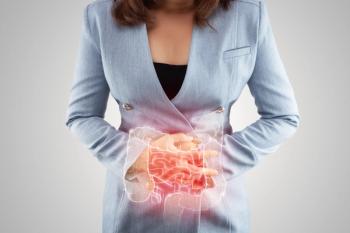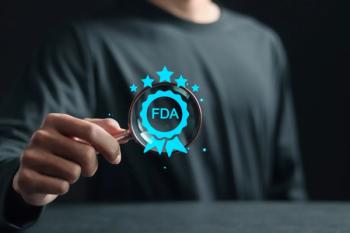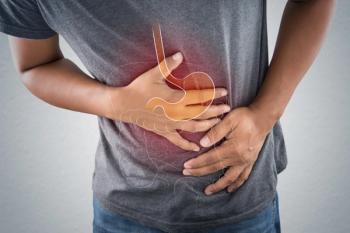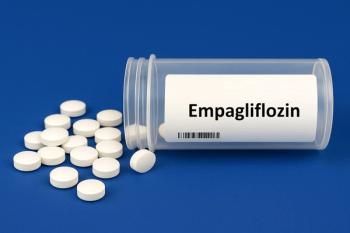
Gastroesophageal Reflux Disease: A Focus on Management and Patient Education
Pharmacists can counsel patients with GERD on strategies to address their symptoms.
Gastroesophageal reflux disease (
Lifestyle Modification
The first step in managing GERD includes nonpharmacologic interventions/lifestyle modification. Patients presenting with GERD symptoms should be counseled on strategies that may address their symptoms. Patients who are overweight or those who have recently gained weight should be counseled about the importance of weight loss. It is important to note that GERD symptoms may develop even in those individuals with a normal body mass index who experienced recent weight gain.1 The weight loss goal in patients suffering from GERD should be at least 10%.3 Patients, especially those who suffer from nocturnal GERD, should also be counseled about the benefits of elevating the head of the bed and avoiding meals 2 to 3 hours before bedtime.1 Head of bed elevation can be achieved by inserting a foam wedge under the mattress such that the head of the bed will be elevated by 6 to 8 inches. Traditionally, patients suffering from GERD have been counseled about the need to quit smoking and eliminate foods that are believed to trigger reflux, including chocolate, caffeine, alcohol, acidic and/or spicy foods, as these may decrease LES pressure or act as direct irritants to the esophageal mucosa. However, because clinical evidence to support the global avoidance of “trigger” foods is lacking, guidelines published in the American Journal of Gastroenterology note that this strategy is not recommended in the management of GERD.1
Pharmacologic Management
Pharmacologic management should be reserved for patients in whom non-pharmacologic interventions/lifestyle modifications were unsuccessful. The pharmacologic management of GERD is primarily aimed at acid suppression, which at times may be accompanied by adjunctive treatment with promotility agents.3 Acid suppression may be achieved with the use of non-prescription antacids, which are appropriate for treating milder intermittent GERD symptoms. Patients suffering from more severe or chronic symptoms usually require treatment with proton pump inhibitors (PPIs) or with H2 receptor antagonists (H2RAs).3 The various PPIs on the market are similar to one another in efficacy, useful in the management of moderate-to-severe symptoms, and generally produce long-lasting effects over the course of the day. When treatment is initiated, PPIs are typically dosed once daily, with the dose administered prior to the first meal of the day. Traditional delayed-release PPIs should be administered 30 to 60 minutes before a meal, but dexlansoprazole can be dosed more flexibly relative to the timing of the meal. Patients that only respond partially to PPI therapy may benefit from adjusting the timing of the dose, twice daily dosing, and/or switching to another PPI. In patients with mild-to-moderate disease, H2RAs may be appropriate. These agents, which are also similar in their efficacies to one another, are usually dosed in divided doses, but often produce suboptimal results.3 Promotility agents, such as metoclopramide, may be used as adjuncts to acid suppression therapy in patients with a known motility defect; however, these agents generally have undesirable adverse effects and their efficacy is limited.
Dr Nathan is the director at the International Drug Information Center and associate professor at Arnold & Marie Schwartz College of Pharmacy and Health Sciences, Long Island University.
Dr Grossman is a drug information specialist at the International Drug Information Center and adjunct assistant professor at Arnold & Marie Schwartz College of Pharmacy and Health Sciences, Long Island University.
References
1. Katz PO, Gerson LB, Vela MF. Guidelines for the Diagnosis and Management of Gastroesophageal Reflux Disease. Am J Gastroenterol. 2013;108(3):308-328. doi: 10.1038/ajg.2012.444.
2. The National Institute of Diabetes and Digestive and Kidney Diseases. Symptoms & Causes of GER & GERD. November 2014. Accessed June 30, 2020.
3. May D, Thiman ML, Rao SSC. Gastroesophageal Reflux Disease. In: DiPiro JT, Yee GC, Posey L, Haines ST, Nolin TD, Ellingrod V, eds. Pharmacotherapy: A Pathophysiologic Approach, 11e. McGraw-Hill; 2020.
Newsletter
Pharmacy practice is always changing. Stay ahead of the curve with the Drug Topics newsletter and get the latest drug information, industry trends, and patient care tips.























